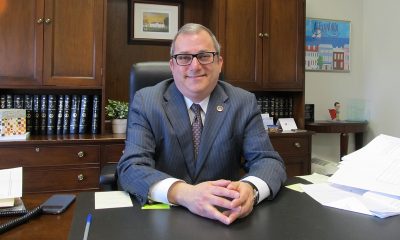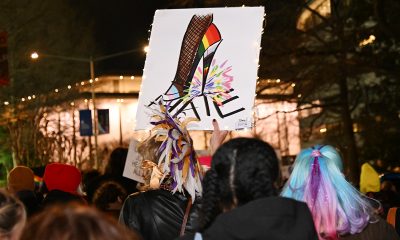Obituary
First United States Gay Ambassador James C. Hormel dies at 88
“Jim Hormel was a barrier-breaking public servant, champion for LGBTQ equality, and cherished friend who will be dearly missed.”
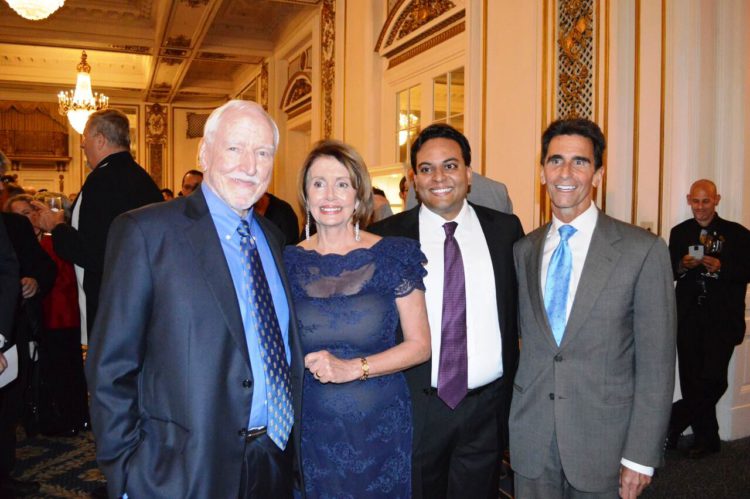
SAN FRANCISCO – The first openly gay diplomat appointed as the United States Ambassador to Luxembourg in 1999 by President Bill Clinton, has died at 88. James C. Hormel, heir to the Hormel meatpacking fortune, was a longtime philanthropist who parlayed his financial interests and contributions as a longtime Democratic Party activist and donor, into actively pursuing LGBTQ+ equality and civil rights.
“We are deeply saddened by the passing of Ambassador Jim Hormel. Jim devoted his life to advancing the rights and dignity of all people, and in his trailblazing service in the diplomatic corps, he represented the United States with honor and brought us closer to living out the meaning of a more perfect union,” former President Bill Clinton and his wife, former U.S. Secretary of State Hillary Clinton said in a joint statement. “We will always be grateful for his courageous and principled example, as well as the kindness and support he gave us over so many years. Our thoughts are with his family and all who loved him.”
Hormel’s work as an openly gay supporter for equality led to his being one of the founders of the Human Rights Campaign Fund along with fellow native Minnesotan Steve Endean. In 1995 the organization was renamed the Human Rights Campaign.
A long time San Franciscan, Hormel served as a member of the board of directors of the San Francisco Chamber of Commerce and the American Foundation for AIDS Research. He also founded and funded the James C. Hormel LGBTQIA Center located at the San Francisco Public Library.
Two notable national Democratic Party political figures and fellow San Franciscans, U.S. Senator Diane Feinstein and U.S. House Speaker Nancy Pelosi reflected on Hormel’s long service.
Sen. Feinstein’s statement read in part, “San Francisco lost a great friend today. A philanthropist, civil rights pioneer and loving spouse and father, James Hormel lived an extraordinary life and will be deeply missed by many, Feinstein said. I had the pleasure of working closely with him on several issues, most notably on the 1984 Democratic National Convention in San Francisco. Tapped to be the ambassador to Luxembourg by President Clinton in 1997, he was the first openly gay person to serve as an ambassador. While his nomination was controversial at the time, his service was distinguished and helped advance LGBTQ rights both at home and abroad.”
House Speaker Pelosi released a statement praising Ambassador Hormel’s commitment to advancing LGBTQ+ Equality rights.
“Jim Hormel was a barrier-breaking public servant, champion for LGBTQ equality, and cherished friend who will be dearly missed in San Francisco, in our nation and around the world. Jim Hormel made history as the first openly gay U.S. ambassador, showing the world how the voices of LGBTQ Americans are integral to foreign policy, and paving the way for a new generation of leaders,” said Pelosi. “With his gentle yet powerful voice and undaunted determination, Jim made it his mission to fight for dignity and equality for all. Paul and I are heartbroken at this tremendous loss, and hope it is a comfort to his husband, Michael, and his children Alison, Anne, Elizabeth, James Jr. and Sarah, that Jim’s extraordinary life continues to serve as a beacon of hope and promise for LGBTQ children across our country and around the world.”
Born at the height of the Great Depression in January of 1933, Hormel, the grandson of Hormel Foods founder George A. Hormel, earned his bachelor of Arts Degree from Swarthmore College in suburban Philadelphia and later a law degree from University of Chicago Law School. He later served as the school’s Dean of Students and Director of Admissions.
Hormel’s Democratic Party activism coupled with his dedicated efforts to advance the cause of LGBTQ equality led to a chance dinner conversation in 1992 with then candidate Bill Clinton’s campaign treasurer, Bob Farmer.
Cynthia Laird, the editor of The Bay Area Reporter, San Francisco’s LGBTQ newspaper noted Hormel’s recounting that conversation which was originally published in B.A.R. in 2016;
Over dinner, Farmer suggested to Mr. Hormel that he seek a presidential appointment as an ambassador.
“I was quite surprised when he brought up the idea,” said Mr. Hormel, noting that over 60% of such positions are held by career employees who have come up through the ranks in the Foreign Service.
The appointment did not happen easily, Mr. Hormel recalled.
In fact, it wasn’t until five years after that dinner that Clinton nominated Mr. Hormel for the job. During that period, recalled Mr. Hormel, he made “dozens of visits and hundreds of phone calls” to keep his name in consideration.
Mr. Hormel said he was persistent because, if appointed, “I would break a ceiling and make it easier for gay people to serve at the highest levels of government.”
Initially, Hormel was considered for an ambassadorship to Fiji by the Clinton White House, but according to published accounts in the Washington Blade, D.C.’s LGBTQ newspaper and the Washington Post in December of 1994, his name was withdrawn from consideration in part due to objections from conservatives in both parties on Capitol Hill and the government of Fiji itself.
The Washington Blade’s Lou Chibbaro reported; “The action on Hormel also comes after members of the moderate and conservative wings of the Democratic Party have said the stunning defeat last month of Democratic members of Congress was due, in part, to Clinton’s support for Gay civil rights in general and Gays in the military in particular.“
Fijian officials had protested in part because same-sex intimate sexual relations were a crime punishable by long prison sentences and Hormel’s status as an openly gay man ran counter to the principles of “Fijian Culture” they claimed.
“Hormel’s nomination as ambassador to Fiji would be “dead in the water,” said one source familiar with the controversy, who spoke on condition of anonymity,” the Blade reported. “The source said Helms made it clear through intermediaries that he would bottle up Hormel’s nomination in committee.
The Blade also reported that; “The only reason Jim Hormel did not get the job was because he is Gay,” said one Gay activist leader, who spoke on condition that he not be identified.”
The Clinton Administration according to the Washington Post then explored another appointment for Hormel that would not require Senate confirmation. One option under consideration, the Post reported, was a position in a delegation to an international conference on social justice issues in Copenhagen. Another possibility, the Post said, was participation by Hormel in the United Nations commission on human rights in Geneva.
President Clinton ultimately named Hormel as a member of the United States delegation to the United Nations Human Rights Commission in 1995, and in 1996 Hormel was named an alternate U.S. representative at the United Nations General Assembly.
The following October of 1997, the president nominated Hormel as his choice to be the U.S. Ambassador to the principality of the Grand Duchy of Luxembourg. While the Senate Foreign Relations Committee approved his nomination with the exceptions of Republican conservative Senators Jesse Helms and John Ashcroft opposed, the battle in the Senate which got progressively uglier as contentious portions of Hormel’s philanthropic and activist work were derided by more conservative Republicans and the powerful political foes of LGBTQ+ equality rights.
Those groups included the Southern Poverty Law Center’s designated extremist anti-LGBTQ hate groups, the Washington D.C. based Family Research Council and the Orange County, California based Traditional Values Coalition Christian organization founded by Rev. Louis P. Sheldon to oppose LGBTQ+ rights.
In a Wikimedia entry on Hormel it notes that FRC and TVC both:
- Labelled Hormel as being pro-pornography, asserting that Hormel would be rejected in the largely Roman Catholic Luxembourg. It was later observed that much of the same material could also be found in the Library of Congress.
- The FRC distributed video tapes of a television interview with Hormel at the 1996 San Francisco Pride parade in which Hormel laughed at a joke about the Sisters of Perpetual Indulgence, a group of men who dress in drag as nuns to mock religious conventions, as they passed by. The Catholic League took this as an indication of approval of what they characterized as an anti-Catholic group. In a meeting with Tim Hutchinson, Hormel declined to repudiate the Sisters. In an interview years later, Hormel objected to the idea that the video clip showed that he approved of the group and that he was anti-Catholic.
- It was revealed that Hormel had contributed $12,000 to fund the production of the It’s Elementary: Talking About Gay Issues in School, a video aimed at teaching tolerance of homosexuality to grade-school students. This especially inflamed Senator Bob Smith of New Hampshire, who was portrayed unflatteringly in the film. Smith contended that he opposed Hormel not because he was gay but because of his “advocacy of the gay lifestyle”.
Ultimately after Republicans were successful in stalling Hormel’s nomination, preventing a vote which was orchestrated by then Senate Majority Leader, Mississippi Republican U.S. Senator Trent Lott, President Clinton in May of 1999 in a recess appointment made Hormel the U.S. Ambassador to Luxembourg.
The Washington Post reported, “Bypassing Senate confirmation, President Clinton moved yesterday to directly install gay San Francisco businessman James C. Hormel as ambassador to Luxembourg.
The president invoked a provision of the Constitution allowing him to make such appointments during a congressional recess. Hormel, who will become the first openly gay U.S. ambassador, can serve in the post through the end of 2000.
The “recess appointment” drew criticism from a spokesman for Senate Majority Leader Trent Lott (R-Miss.) and conservative groups but was praised by gay rights activists.
“The denial of a confirmation vote by the Senate leadership, a vote he would have easily won, was nothing more than anti-gay discrimination,” said Elizabeth Birch of the Human Rights Campaign, the nation’s largest gay and lesbian political group to the Washington Post.
The Post also reported that Clinton’s recess appointment of Hormel was criticized by Lott spokesman John Czwartacki who said it was “a slap in the face,” particularly to Catholics.
Czwartacki cited what he said were Hormel’s links with the Sisters of Perpetual Indulgence — drag queens who dress as nuns.
White House spokesman Barry Toiv said Hormel does not support “any such group. The idea . . . is outrageous and is false.”
The Family Research Council claimed that Hormel’s appointment was strictly to “advance the gay agenda.” on what the anti-LGBTQ+ hate group deemed a “a government-sanctioned platform.”
Hormel went on to serve as ambassador until the inaugural of President George W. Bush on January 20, 2001.
After his service as ambassador Hormel returned to his philanthropic work moving back to the City by the Bay where he was honored in 2010, with a lifetime achievement grand marshal for the San Francisco Pride parade.
Hormel also continued his lifelong advocacy work and as an elder statesmen in the Democratic Party. When then President-elect Joe Biden announced his choice of nominating openly out Pete Buttigieg as U. S. Secretary of Transportation, the Washington Blade’s White House reporter Chris Johnson reported, “Buttigieg, who made history as a gay Democratic candidate in the 2020 primary said at the time his career aspiration was to become an airline pilot and “was a long way from coming out, even to myself,” but gained knowledge from Hormel’s story.”
The Blade also reported; “I learned about some of the limits that exist in this country when it comes to who is allowed to belong, and just as important, I saw how those limits could be challenged,” Buttigieg said. “So, two decades later, I can’t help but think of a 17-year-old who might be watching right now, someone who wonders whether and where they belong in the world, or even in their own family, and I’m thinking about the message today’s announcement is sending to them.”
Hormel, in an email to the Blade the day after Buttigieg praised him, was able to return the favor by offering support.
“I enthusiastically support the nomination of Pete Buttigieg as secretary of transportation and will acknowledge him as the first openly LGBTQ member of the presidential Cabinet,” Hormel said.
“Today we mourn the loss of a true titan in our LGBTQ+ movement — a trailblazer, a mentor and a friend to all those who sought his counsel during his decades of leadership and advocacy. Ambassador James Hormel defined our community’s resilience — representing our nation with honor and distinction in the face of vile hate and discrimination,” Executive Director of Equality California’s Rick Chavez Zbur said in a statement. “In the years since his diplomatic service, Jim has been unyieldingly generous with his time and his resources, working tirelessly to create a world that is healthy, just and fully equal for all LGBTQ+ people.
“It is true that we stand on the shoulders of the giants who came before us. I am forever grateful for the wisdom and guidance that Jim shared with me and Equality California over the past 25 years, and I am confident that generations of LGBTQ+ diplomats, advocates and community leaders will benefit from his life’s work. I know that we will continue to see the immeasurable impact of his contributions on the faces of children who dream of walking the world’s greatest halls of power without worry that who they are or whom they love could ever limit their potential.”
Hormel is survived by his husband Michael and his children Alison, Anne, Elizabeth, James Jr. and Sarah.
Additional reporting from Lou Chibbaro, Chris Johnson, The Bay Area Reporter, and The Washington Post.
District of Columbia
Acclaimed bisexual activist, author Loraine Hutchins dies at 77
Lifelong D.C.-area resident was LGBTQ rights advocate, sex educator
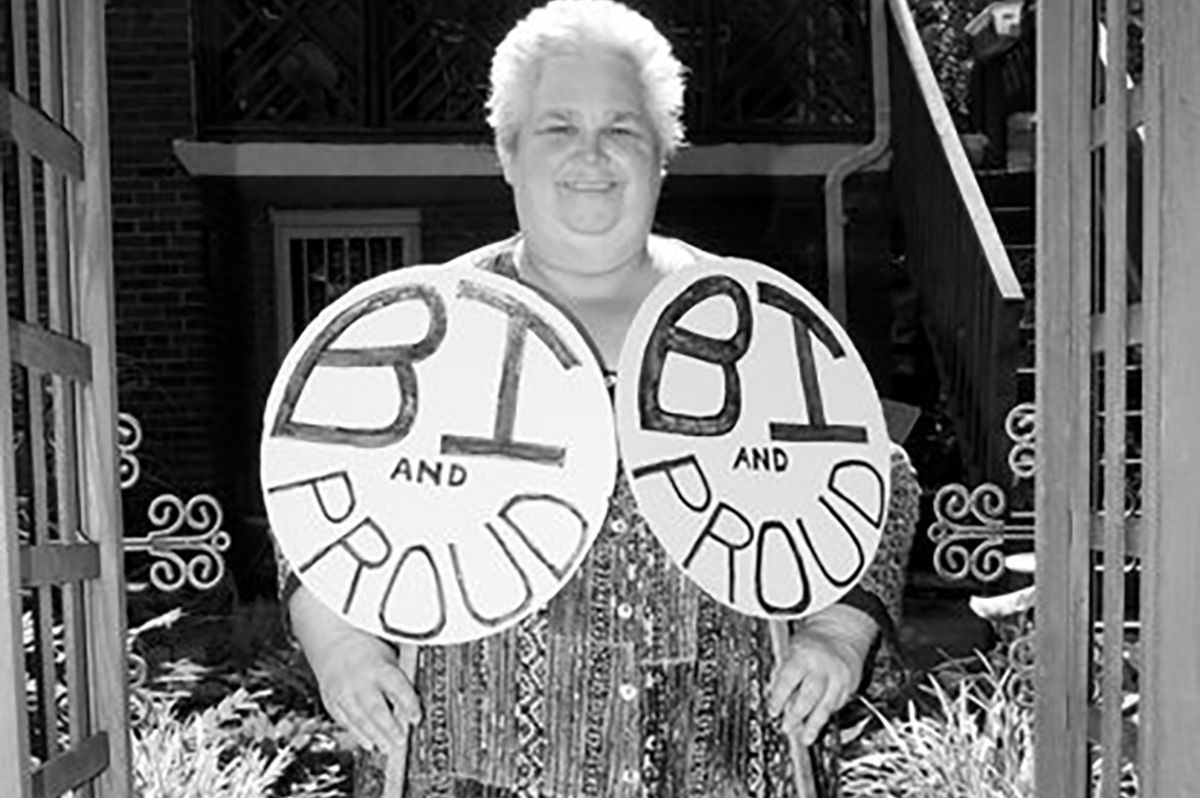
Loraine Adele Hutchins, a nationally known and acclaimed advocate for bisexual and LGBTQ rights, co-author and editor of a groundbreaking book on bisexuality, and who taught courses in sexuality, and women’s and LGBTQ studies at a community college in Maryland, died Nov. 19 from complications related to cancer. She was 77.
Hutchins, who told the Washington Blade in a 2023 interview that she self-identified as a bisexual woman, is credited with playing a lead role in advocating for the rights of bisexual people on a local, state, and national level as well as with LGBTQ organizations, many of which bi activists have said were ignoring the needs of the bi community up until recent years.
“Throughout her life, Loraine dedicated herself to working and speaking for those who might not be otherwise heard,” her sister, Rebecca Hutchins, said in a family write-up on Loraine Hutchins’s life and career.
Born in Washington, D.C., and raised in Takoma Park, Md., Rebecca Hutchins said her sister embraced their parents’ involvement in the U.S. civil rights movement.
“She was a child of the ‘60s and proudly recalls attending Martin Luther King’s ‘I Have a Dream’ speech with her mother on the D.C. Mall,” she says in her write-up. “She was steeped in the civil rights movement, was a member of the Student Non-Violent Coordinating Committee, and was proud to say she had an FBI record.”
The write-up says Hutchins received a bachelor’s degree from Shimer College in Mount Carroll, Ill. in 1970, and a Ph.D. in 2001 from Union Institute. It says she was also a graduate of the Institute for the Advanced Study of Human Sexuality’s Sexological Bodyworkers certification training program.
The family write-up says in the 1970s Hutchins became involved with efforts to assist tenants, including immigrant tenants, in affordable housing programs in D.C.’s Adams Morgan neighborhood.
“In 1991, she co-authored the groundbreaking book, ‘Bi Any Other Name: Bisexual People SPEAK OUT’ with friend and colleague Lani Ka’ahumanu,” the write-up says. It notes that the acclaimed book has been republished three times and in 2007 it was published in Taiwan in Mandarin.
According to the write-up, Hutchins delivered the keynote address in June 2006 at the Ninth International Conference on Bisexuality, Gender and Sexual Diversity. In October 2009, D.C.’s Rainbow History Project honored her as one of its Community Pioneers for her activist work.
“Loraine is one of the few people who has explained, defended and championed bisexuality and made sure the “B” got into the LGBT acronym,” the Rainbow History Project says on its website in a 2009 statement. “Sensitivity to bisexual issues, civil rights, and social justice issues is Loraine’s life work,” the statement concludes.
The write-up by her sister says that up until the time of her retirement, Hutchins taught women’s and LGBT studies as well as health issues in sexuality at Montgomery Community College and Towson University in Maryland.
“She was a friend and mentor to many in the LGBTQ community,” it says. “She thoroughly enjoyed adversarial banter on the many topics she held dear: sexuality, freedom of speech, civil rights, needs and support of those with disabilities, especially in the area of mobility, assisted housing, liberal politics and many other causes,” it points out.
She retired to the Friends House community in Sandy Springs, Md., where she continued her activism, the write-up concludes.
Hutchins was among several prominent bisexual activists interviewed by the Washington Blade at the time of her retirement in June 2023 for a story on the status of the bisexual rights movement. She noted that, among other things, in her role as co-founder the organizations BiNet USA and the Alliance of Multicultural Bisexuals, she joined her bi colleagues in prodding national LGBTQ advocacy organizations to improve their advocacy work for bisexuals, which Hutchins said had been inadequate in the past but had been improving in recent years.
Hutchins is survived by her sister, Rebecca Hutchins; her husband, Dave Lohman; nephew, Corey Lohman and his wife Teah Duvall Lohman; and cousins, the family write-up says.
It says a private memorial service was scheduled for December and a public memorial service recognizing her contributions to the LGBTQ community will be held in the spring of 2026.
Obituary
Acclaimed disability rights advocate Thomas Mangrum dies at 61
Lifelong D.C. resident also served as ‘cherished’ Capital Pride volunteer
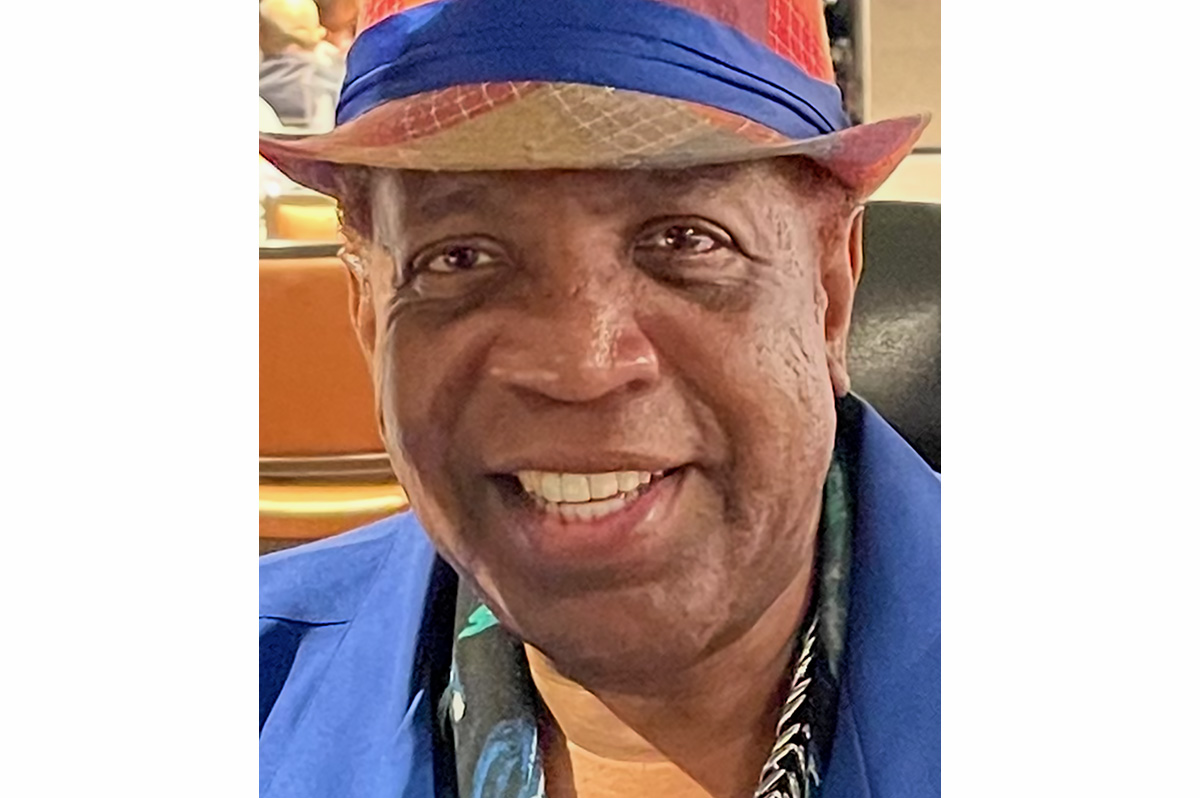
L. Thomas Magnum Jr., a lifelong D.C. resident, widely recognized and acclaimed advocate for people with disabilities, and LGBTQ rights activist involved in the city’s Capital Pride events, died Sept. 17 from complications related to stomach cancer. He was 61.
A statement released by Project ACTION!, a local disability advocacy organization for which Mangrum served for 15 years as co-president, says he worked for more than 20 years for the D.C.-based Maurice Electric Supply company before retiring in 2002 and devoting his efforts to disability-related projects and programs.
Phylis Holton, an official with the D.C. organization Quality Trust For Individuals With Disabilities and a longtime friend of Mangrum, said as a person with a developmental disability Mangrum devoted his life to supporting others with all forms of disabilities. She said that due to a separate spinal condition, Mangrum used a wheelchair for about 15 years prior to his passing.
Holton said Mangrum had a mild form of developmental disability, which the U.S. Centers for Disease Control and Prevention describes as “a group of conditions due to an impairment in physical, learning, language or behavior areas” that usually develops before a child is born during pregnancy.
Holton said Mangrum was an active member of Project ACTION! for 15 years prior to the 15 years he served as the organization’s co-president.
“He traveled nationally and presented at conferences, was featured on webinars and podcasts on a variety of topics related to self-advocacy, accessibility, equality, and more,” Holton told the Washington Blade in a statement.
“He shared his lived experience of being a Black man with a disability, and being gay, and how it impacted how he was treated in the community,” Holton said. “He was a strong advocate and co-facilitated trainings for independent advocacy organizations that Thomas supported and was a key advocate in their advocacy work,” she said.
Holton added, “He would answer a late request to train a group of attorneys, present at a meeting or testify before City Council or meet with an advocacy group to advance pending legislation that impacted people with disabilities.”
She said Mangrum also enjoyed participating in LGBTQ Pride events and last year traveled to the New York Pride events. According to Holton, he looked forward to participating in WorldPride 2025 events earlier this year in D.C. “but his illness prevented him from doing so.”
In a statement announcing Mangrum’s passing, Capital Pride Alliance, the group that organizes D.C.’s annual LGBTQ Pride events and served as the lead organizer of WorldPride 2025 in D.C., called Mangrum a “cherished volunteer” for D.C. Pride events.
June Crenshaw, the Capital Pride Alliance Deputy Director, said Mangrum served as a volunteer for D.C.’s LGBTQ Pride events “for many years” and was involved in many of the planning activities for WorldPride before his illness prevented him from participating in WorldPride earlier this year.
“He certainly in my interaction with him made me very aware of making sure that Capital Pride was thinking about accessibility always, and making sure that we had a welcoming, affirming accessible space for participants and staff with disabilities,” Crenshaw said.
In its statement on Mangrum’s career and accomplishments in life, Project ACTION! says he helped to advance the needs of people with disabilities through service on many boards and commissions. Among them were Lifeline Partnership, the D.C. Developmental Disabilities Council, the D.C. Center for Independent Living, the Washington Metropolitan Area Transportation Authority’s Accountability Advisory Committee, “and many more.”
“His leadership, passion, and unwavering commitment to equity and inclusion made a lasting impact on all who had the privilege to know and work alongside him,” the statement says.
It adds, “Thomas showed us the power of perseverance, courage, and the importance of standing together. His spirit will continue to guide us and strengthen our community for generations to come.”
A funeral for Mangrum was scheduled for Oct. 9, at D.C.’s Westminster Presbyterian Church at 400 I Street, S.W., with a viewing at 10 a.m. followed by a program at 11 a.m. A burial was scheduled to take place that same day at Heritage Memorial Cemetery at 13472 Poplar Hill Road in Waldorf, Md.
Holton said in lieu of flowers, donations may be made to Project ACTION! for a Celebration of Life and advocacy scholarship in Mangrum’s name. A date and location for the Celebration of Life for Mangrum was to be announced later, according to Project ACTION!
Obituary
Susan Xenarios, crime victim advocate, long-time LGBTQ ally, dies at 79
‘Susan was a force of nature, a mentor’
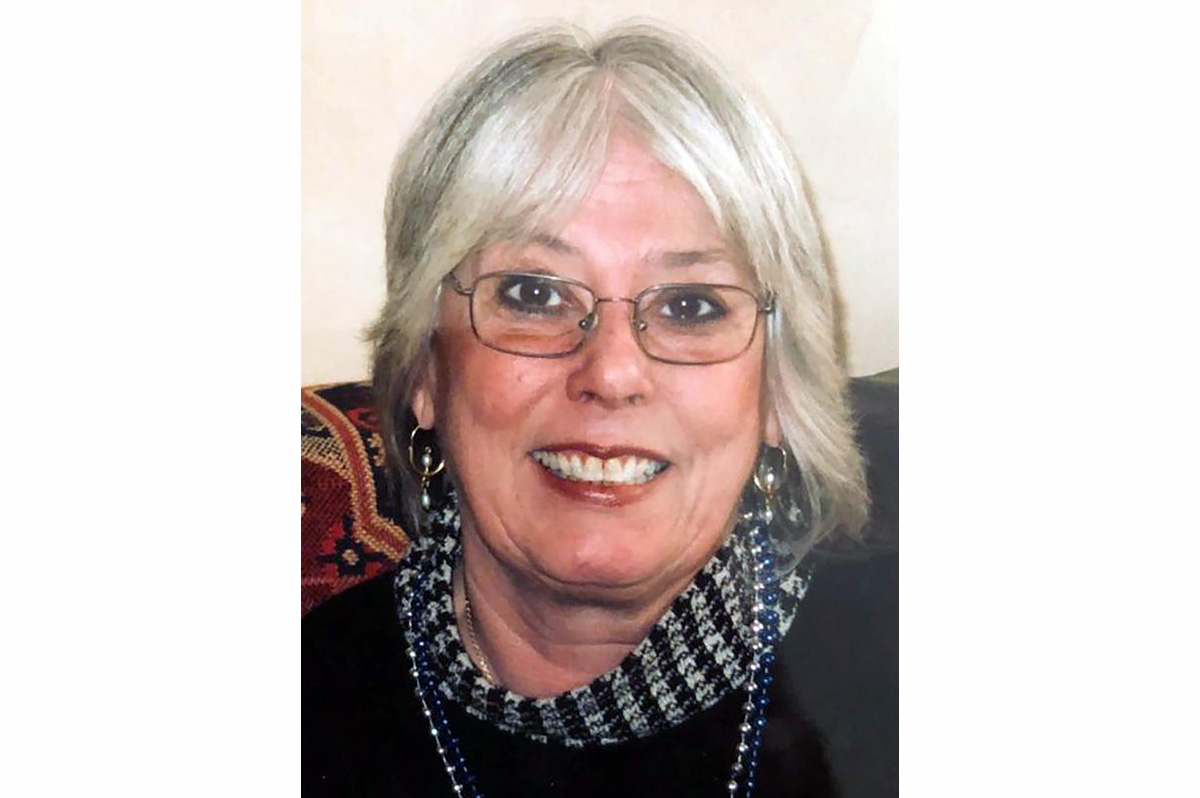
Susan Xenarios, LCSW, a visionary and dynamic leader of New York’s crime victim movement for 50 years and a courageous ally of the LGBTQ community, died on Sept. 6 in Manhattan. She was 79.
In 1974, an assailant held a knife to Ms. Xenarios’s throat and raped her on a rooftop in Upper Manhattan. At a time when few sexual assault victims spoke out, she began a lifelong, public campaign to improve the care and treatment of survivors and to reform laws and police procedures. Along with her high-profile advocacy, she never stopped counseling individual survivors of crime, pioneering breakthrough therapeutic interventions.
Ms. Xenarios led the creation of New York’s first program to provide assistance to survivors of sexual assault, the state’s first clinical program for male survivors, and the New York Sexual Assault Forensic Examiner (SAFE) Program, which ensures survivor-centered emergency room protocols, including evidence collection. She served as executive director of the Crime Victims Treatment Center in New York City for 40 years (1977 -2017).
Ms. Xenarios also was a driving force behind several state laws to advance the rights of crime survivors, including a 1993 law protecting the confidentiality of rape crisis center communications, the Hate Crimes Act 2000, which included enhanced penalties for hate-motivated crimes, including anti-LGBTQ assaults, and the 2015 “Enough is Enough” law, one of the first laws in the nation to require all colleges to adopt a set of comprehensive procedures for addressing sexual violence on campuses.
“Susan was a force of nature, a mentor, an extraordinary ally to the LGBT community, and a dear friend,” said Bea Hanson, director of the New York State Office of Victim Services, principal deputy director of the federal Office on Violence Against Women during President Barack Obama’s administration (2011-2017), and director of client services of the New York City Gay and Lesbian Anti-Violence Project (1991-1997). “She was a leader in advocating for the rights of sexual assault survivors and all crime victims. She spoke truth to power with a smile on her face and love in her heart. She will be missed.”
“Susan was the greatest champion and friend of LGBT victims of crime there ever was or ever will be,” said Matt Foreman, former executive director of the NYC Gay and Lesbian Anti-Violence Project (1990-1996) and the Empire State Pride Agenda (1996-2003). “She was one of the first to recognize the prevalence of sexual assault against men and she created the first program to help male survivors. When there was enormous pressure to pass a hate crimes law that did not include anti-LGBT offenses, she made sure the larger movement did not abandon us. She understood the harmful effects of having terms like ‘sodomy’ and ‘deviate sexual intercourse’ in New York State law and led the successful drive to purge them from the books. She was so genuinely warm and supportive, I was shocked when I learned that she wasn’t a lesbian.”
A memorial service will be held on Saturday, Sept. 20, at 11 a.m. at West End Collegiate Church, 245 W. 77th St. in Manhattan.
-

 National4 days ago
National4 days agoWhat to watch for in 2026: midterms, Supreme Court, and more
-

 Colombia5 days ago
Colombia5 days agoBlade travels to Colombia after U.S. forces seize Maduro in Venezuela
-

 Minnesota5 days ago
Minnesota5 days agoTim Walz drops out of Minn. governor’s race
-

 Virginia5 days ago
Virginia5 days agoLGBTQ groups to join Spanberger inaugural parade

